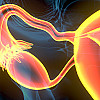Recent Blog Articles

Lead poisoning: What parents should know and do

How does waiting on prostate cancer treatment affect survival?

Does running cause arthritis?

Is alcohol and weight loss surgery a risky combination?

Preventing ovarian cancer: Should women consider removing fallopian tubes?

Healthier planet, healthier people

Is snuff really safer than smoking?

Will miscarriage care remain available?

Considering collagen drinks and supplements?

Does less TV time lower your risk for dementia?
Alcohol Use Disorder (Alcoholism)
What is alcohol use disorder?
In an alcohol use disorder (AUD, commonly called alcoholism), excessive alcohol use causes symptoms affecting the body, thoughts and behavior. A hallmark of the disorder is that the person continues to drink despite the problems that alcohol causes. There is no absolute number of drinks per day or quantity of alcohol that defines an alcohol use disorder, but above a certain level, the risks of drinking increase significantly.
Here are some defining characteristics of alcohol dependence:
- Drinking more than intended. Loss of control over the amount of alcohol used.
- Desire to stop drinking, but inability to do so.
- Excessive time spent getting or using alcohol, or recovering from its effects.
- Craving, or preoccupation with drinking.
- Problems stemming from alcohol use; ignoring those problems; drinking despite obvious hazards, including physical danger.
- Retreating from important work, family or social activities and roles.
- Tolerance – The need to drink more and more alcohol to feel the same effects, or the ability to drink more than other people without getting drunk.
- Withdrawal symptoms – After stopping or cutting back on drinking, symptoms are anxiety, sweating, trembling, trouble sleeping, nausea or vomiting, and, in severe cases, physical seizures and hallucinations. The person may drink to relieve or avoid such symptoms.
A person with alcohol use disorder has come to rely on alcohol physically, psychologically and/or emotionally. The brain adapts to the presence of alcohol and undergoes persistent changes. When alcohol use suddenly stops, the body is not accustomed to being alcohol free. The internal environment changes drastically, causing symptoms of withdrawal.
To continue reading this article, you must log in.
Subscribe to Harvard Health Online for immediate access to health news and information from Harvard Medical School.
- Research health conditions
- Check your symptoms
- Prepare for a doctor's visit or test
- Find the best treatments and procedures for you
- Explore options for better nutrition and exercise
I'd like to receive access to Harvard Health Online for only $4.99 a month.
Sign Me UpAlready a member? Login ».
Disclaimer:
As a service to our readers, Harvard Health Publishing provides access to our library of archived content. Please note the date of last review or update on all articles.
No content on this site, regardless of date, should ever be used as a substitute for direct medical advice from your doctor or other qualified clinician.
Free Healthbeat Signup
Get the latest in health news delivered to your inbox!
